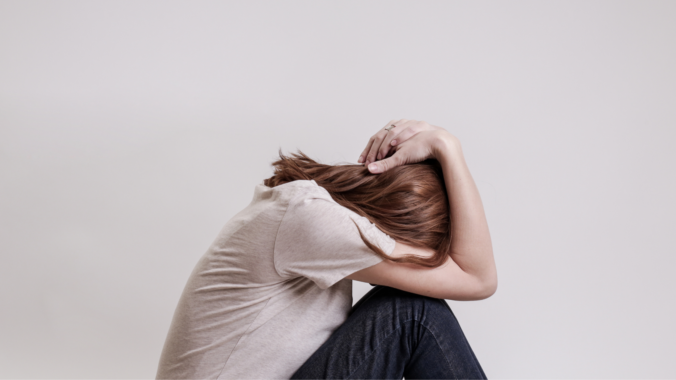Let’s face it. We’ve all had those moments of feeling overwhelmed, tense, or worried about a particular situation or event. That’s anxiety in a nutshell. But what happens when anxiety and fear begin to take over our lives? How do we overcome anxiety and fear? Let’s discuss.
Understanding Anxiety
. What is Anxiety?
Anxiety is a natural response to stress, an emotion characterized by feelings of tension, worried thoughts, and physical changes like increased heart rate. While it’s perfectly normal to experience anxiety from time to time, when it becomes a constant companion, it can become an issue affecting your mental health.
. Causes of Anxiety
Understanding the causes can help individuals seek appropriate treatment and adopt strategies to manage or overcome anxiety effectively.
1. Genetics: Some individuals may be genetically predisposed to anxiety disorders, as they may inherit certain genes that make them more susceptible to experiencing anxiety.
2. Brain Chemistry: Imbalances in neurotransmitters, such as serotonin and dopamine, can contribute to anxiety. These chemicals play a crucial role in regulating mood, emotions, and stress response.
3. Environmental Factors: Certain environmental factors can contribute to the development of anxiety. These may include traumatic events, chronic stress, abuse, neglect, or a dysfunctional family environment.
4. Medical Conditions: Certain medical conditions, such as thyroid disorders, heart disease, respiratory conditions, and chronic pain, can be associated with anxiety symptoms.
5. Substance Abuse: Substance abuse or withdrawal from drugs and alcohol can induce anxiety symptoms. Substance abuse can disrupt brain chemistry and exacerbate anxiety disorders.
6. Personality Traits: Individuals with certain personality traits, such as perfectionism, excessive worrying, or a tendency to overthink, may be more prone to developing anxiety disorders.
7. Traumatic Experiences: Experiencing or witnessing a traumatic event, such as accidents, natural disasters, or violence, can trigger anxiety disorders, such as post-traumatic stress disorder (PTSD).
8. Childhood Experiences: Childhood experiences, including neglect, abuse, or loss of a loved one, can increase the risk of developing anxiety disorders later in life.
9. Major Life Changes: Significant life changes, such as starting a new job, getting married, or moving to a new place, can induce stress and contribute to anxiety symptoms.
10. Chronic Health Conditions: Living with chronic health conditions, such as chronic pain, diabetes, or autoimmune disorders, can lead to heightened anxiety due to the constant challenges and uncertainties associated with these conditions.
Types of Anxiety

. Generalized Anxiety Disorder (GAD)
People with Generalized Anxiety Disorder experience excessive anxiety and worry about various events or activities most days for at least six months. It’s the chronic thinking about and fearing the worst in many everyday situations. This persistent worrying can interfere with their daily activities, making it hard to carry out tasks or responsibilities.
. Panic Disorder
Panic Disorder is characterized by recurring, unexpected panic attacks. Panic attacks are sudden periods of intense fear that come on quickly and reach their peak within minutes. Symptoms during a panic attack might include heart palpitations, sweating, trembling, shortness of breath, or feelings of impending doom. People with this disorder live in fear of experiencing the next panic attack.
. Social Anxiety Disorder
Social Anxiety Disorder, also known as social phobia, is characterized by a significant amount of fear, embarrassment, or humiliation in social performance-based situations. This leads to avoidance of social situations or enduring them under extreme distress. For example, someone with social anxiety disorder might dread public speaking engagements, eating in public, or even casual social interactions.
. Specific Phobias
Specific phobias are characterized by an intense, irrational fear of a specific object, place, or situation. The fear is disproportionate to the actual danger posed by the object or situation. The phobias can range from fear of spiders (arachnophobia), fear of heights (acrophobia), fear of flying (aviophobia), and many more. People with specific phobias go to great lengths to avoid the objects or situations they fear.
Recognizing Anxiety Signs
Understanding the symptoms of anxiety is a critical step towards managing it. These symptoms can be broadly categorized into physical and emotional symptoms.
. Physical Symptoms
- Rapid heartbeat or palpitations
- Shortness of breath or difficulty breathing
- Sweating or trembling
- Muscle tension or aches
- Fatigue or weakness
- Nausea or stomach discomfort
- Dizziness or lightheadedness
- Headaches or migraines
- Sleep disturbances, such as insomnia or restless sleep
- Changes in appetite, including loss of appetite or overeating
. Emotional Symptoms
- Excessive worry or fear
- Restlessness or feeling on edge
- Irritability or mood swings
- Difficulty concentrating or racing thoughts
- Feeling overwhelmed or a sense of impending doom
- Avoidance of situations that trigger anxiety
- Increased sensitivity to criticism or negative feedback
- Feelings of guilt or self-doubt
- Panic attacks or a sense of impending danger
- Social withdrawal or isolation
Managing Anxiety
When it comes to overcome anxiety and fear, there’s no one-size-fits-all approach. It’s about finding strategies that work best for you.
. Mindfulness
Mindfulness involves staying present and engaged in the current moment. It helps overcome anxiety by stopping the cycle of worry and fear that can dominate our thoughts.
. Regular Exercise
Regular exercise is a natural and effective anti-anxiety treatment. It releases endorphins, chemicals in the brain that act as natural painkillers and mood elevators.
. Balanced Diet
A balanced diet is essential for maintaining overall health, and it can also play a crucial role in managing anxiety. Certain foods, such as those rich in magnesium or zinc, can help reduce anxiety.
. Adequate Sleep
A good night’s sleep is incredibly important for your mental health. It’s while you’re asleep that your brain gets a chance to rest and recharge. Lack of sleep can exacerbate feelings of anxiety.
. Deep Breathing Techniques
Deep breathing can help calm your body and your mind, relieving symptoms of stress and overcome anxiety. Techniques such as diaphragmatic breathing, 4-7-8 breathing, or box breathing can be particularly helpful.
Seeking Professional Help
If anxiety and fear are significantly affecting your life, don’t hesitate to seek professional help. Therapies like cognitive-behavioral therapy (CBT) and medications can be incredibly effective for anxiety disorders.
Conclusion
In conclusion, overcoming anxiety and fear is a journey that requires patience, self-awareness, and the implementation of effective strategies. By understanding the underlying causes, practicing relaxation techniques, challenging negative thoughts, seeking support, and adopting a healthy lifestyle, individuals can take proactive steps to manage their anxiety and fear.
It is important to remember that everyone’s experience with anxiety is unique, and what works for one person may not work for another. It may be beneficial to seek professional help to develop a personalized plan and gain additional support. With dedication and perseverance, it is possible to overcome anxiety and fear, leading to a happier and more fulfilling life.
FAQ’s
What is the difference between fear and anxiety?
Fear is an emotional response to a known or understood threat, whereas anxiety is a reaction to an unknown or expected threat.
Can exercise really help manage anxiety?
Yes, regular exercise can help reduce symptoms of anxiety by releasing endorphins, which act as natural mood elevators.
How does mindfulness help with anxiety?
Mindfulness helps by keeping you engaged in the present moment, breaking the cycle of worry and fear.
Should I seek professional help for my anxiety?
If anxiety is significantly impacting your life, it’s advisable to seek professional help.


